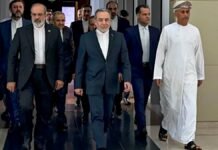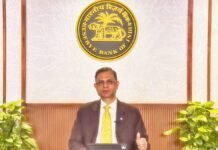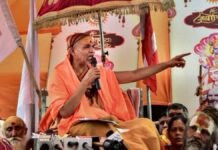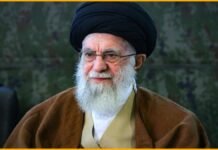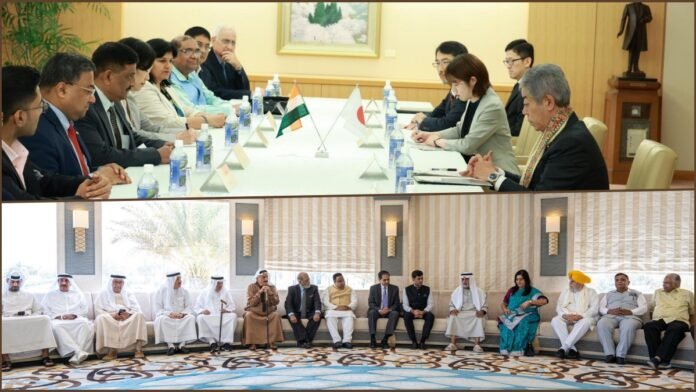
Key Points
- Seven multi-party Indian delegations have begun global outreach to 33 capitals following Operation Sindoor, with first teams reaching UAE and Japan.
- UAE officials explicitly stated “Islam does not teach the killing of innocent civilians” during meetings with the Indian delegation.
- Japan’s Foreign Minister Takeshi Iwaya declared “Japan stands with India” in the fight against terrorism.
- External Affairs Minister S. Jaishankar confirmed Operation Sindoor remains active, warning India will strike terrorists in Pakistan if another attack occurs.
- The delegations include representatives across political parties, demonstrating India’s unified national stance against terrorism.
New Delhi: India’s diplomatic offensive against Pakistan-sponsored terrorism gained significant momentum on Thursday as the first two of seven multi-party delegations reached the UAE and Japan, securing strong statements of support from both nations. The delegations, part of India’s strategic global outreach following Operation Sindoor, aim to present India’s case to 33 countries worldwide.
UAE Condemns Terrorism in the Name of Religion
The delegation to the UAE, led by Shiv Sena MP Shrikant Shinde, held high-level meetings with Sheikh Nahayan Mabarak Al Nahyan, UAE’s Minister of Tolerance and Coexistence, and Dr. Ali Alnuaimi, Chairman of the Defence Affairs, Interior & Foreign Affairs Committee.
In a significant statement of support, UAE officials emphasized that “Islam does not teach the killing of innocent civilians,” directly countering Pakistan’s religious justification for terror activities. The UAE was symbolically chosen as the first country to receive the multi-party delegation, underscoring the deep bonds of friendship between the two nations.
“Our meeting with UAE counterparts was highly fruitful. The UAE stands shoulder to shoulder with India against terrorism,” Shinde stated after the meetings. The delegation also met Ahmed Mir Khoori, member of the UAE Federal National Council, where they “proudly shared India’s decisive success with Operation Sindoor and highlighted the ongoing terrorism threats emanating from Pakistan”.
Japan Pledges Full Support to India’s Counter-Terror Efforts
Simultaneously, the delegation to Japan, led by JD(U) MP Sanjay Jha, secured equally strong backing during meetings with Japanese Foreign Minister Takeshi Iwaya, who declared, “In this fight against terrorism, Japan stands with India”.
The Japanese Foreign Minister also “called for punishing the perpetrators of terror activities” and expressed appreciation for the restraint shown by India during the recent escalation with Pakistan. The delegation also met with Takashi Endo, Chairman of the House of Representatives Committee on National Security, and former Prime Minister Yoshihide Suga, who reiterated Japan’s solidarity with India.
Operation Sindoor Remains Active: Jaishankar’s Warning to Pakistan
As the delegations conducted their diplomatic mission, External Affairs Minister S. Jaishankar clarified India’s position in an interview with Dutch broadcaster NOS. “The operation continues because there is a clear message in that operation – that if there are acts of the kind we saw on April 22, there will be a response, we will hit the terrorists. If the terrorists are in Pakistan, we will hit them where they are,” Jaishankar stated.
Jaishankar also revealed that the May 10 ceasefire was initiated by Pakistan through military channels, not through third-party mediation as claimed by some, including former US President Donald Trump. “On the 10th of May, it was the Pakistani army which sent a message that they were ready to stop firing, and we responded accordingly,” he confirmed.
In a particularly pointed remark, Jaishankar attributed the Pahalgam attack to Pakistan Army Chief Asim Munir’s “extreme religious outlook,” stating the attack “was intended to harm tourism and to create religious discord”.
India’s United Front: Cross-Party Representation
The composition of the delegations demonstrates India’s unified approach to combating terrorism. The UAE delegation includes BJP MPs Bansuri Swaraj and Atul Garg, Rajya Sabha MP Manan Kumar Mishra, IUML MP ET Mohammed Basheer, BJD MP Sasmit Patra, BJP leader SS Ahluwalia, and former diplomat Sujan Chinoy.
Similarly, the Japan delegation comprises representatives from across the political spectrum, including BJP MPs Aparajita Sarangi, Brij Lal, Hemang Joshi and Pradhan Baruah, TMC MP Abhishek Banerjee, CPI-M MP John Brittas, Congress leader Salman Khurshid, and former ambassador Mohan Kumar.
India’s Global Outreach: Mission and Context
The diplomatic initiative follows India’s Operation Sindoor, launched on May 7 in response to the April 22 Pahalgam terror attack that killed 26 civilians. India conducted precision strikes on nine terrorist infrastructure sites in Pakistan and Pakistan-occupied Kashmir, followed by four days of military exchanges before a ceasefire was reached on May 10.
Before departing for the UAE, Shinde highlighted the mission’s importance: “India and Pakistan gained independence at the same time, but India has progressed economically, while Pakistan has progressed only in terrorism”.
BJP MP Bansuri Swaraj added that “The terrorist attack in Pahalgam was a blow to the soul of India. PM Modi has made it clear that terror and talks cannot go together”.
With five more delegations set to visit other countries in the coming days, India’s message is clear: the international community must unite against state-sponsored terrorism, and India reserves the right to defend itself against cross-border threats.




